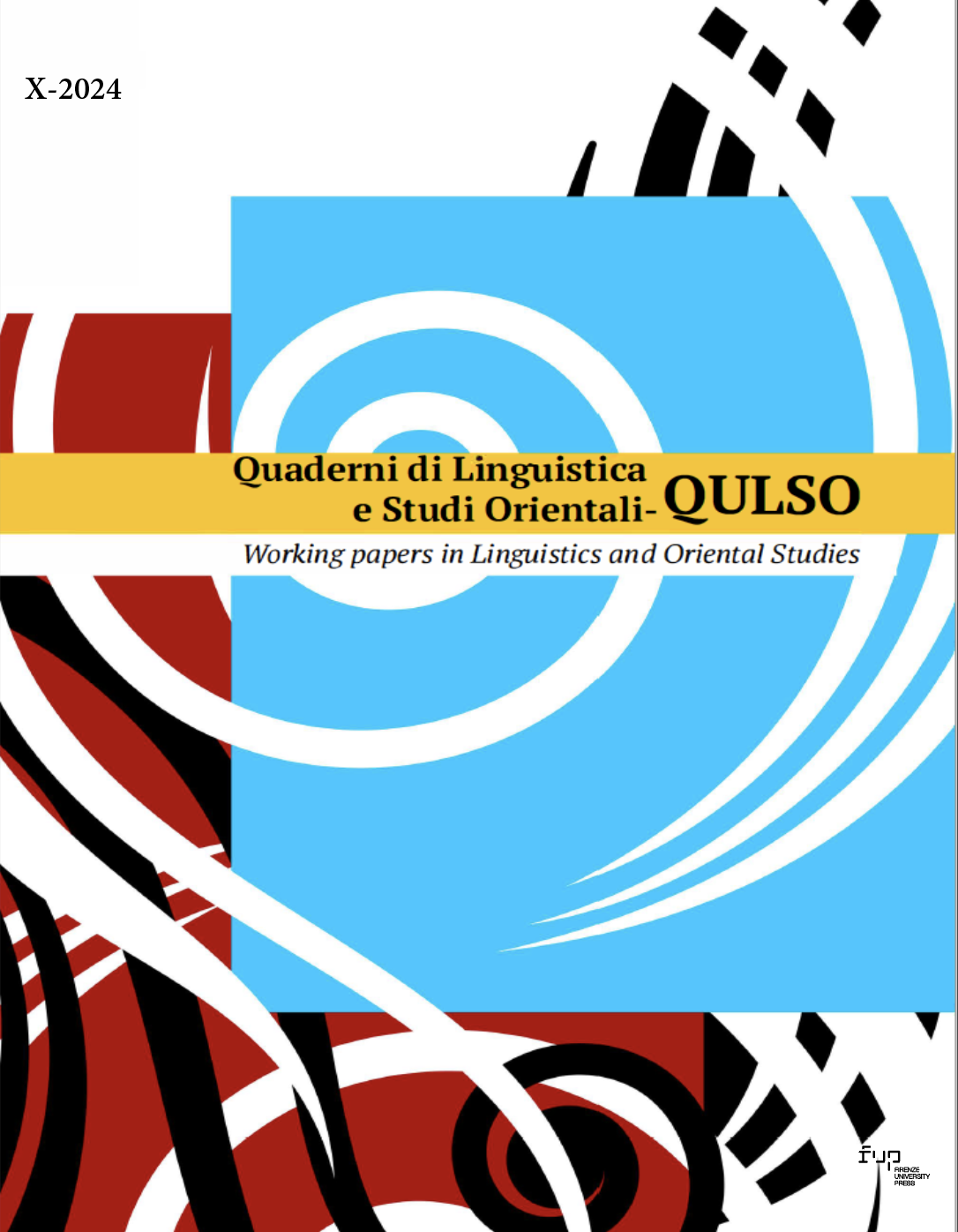Published 2024-10-02
Keywords
- Linguistic sexism,
- Gender bias,
- Bilingualism,
- Foreign Language Effect,
- Stereotypes
How to Cite
Copyright (c) 2024 Greta Mazzaggio

This work is licensed under a Creative Commons Attribution 4.0 International License.
Abstract
This study investigates how the language used to present lexical stimuli influences the expression of gender biases, with a particular focus on the “Foreign Language Effect” (FLE) – the phenomenon where using a foreign language affects judgment and reasoning. Italian native speakers (N=213), English native speakers (N=105), and Italian-English bilinguals (N=192) evaluated 58 words categorized into Power, Weakness, Warmth and Coldness domains for gender connotation. Results indicated consistent stereotypical associations across languages, albeit with variable strength. Critically, participants exhibited attenuated stereotyping when assessing words in a non-native language, providing further empirical validation for the FLE. Foreign language use appears to elicit less automatic social biases, potentially due to decreased emotional activation and increased cognitive distance that occur when processing information in a less proficient language. Additionally, this reduction in stereotyping may be attributed to less exposure to and internalization of sexist language in a second language. By demonstrating the role of language in modulating bias expression, these insights have implications for understanding sociocultural perception formation and developing equitable language policies.

